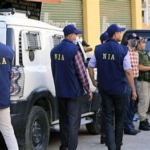
In a recent controversy surrounding the Wrestling Federation of India (WFI) chief, Brij Bhushan Sharan Singh, prominent wrestler Bajrang Punia and Delhi Commission for Women chairperson Swati Maliwal have strongly criticized his derogatory remarks regarding the value of medals won by protesting grapplers. Singh’s comments have sparked outrage within the wrestling community, leading to a public outcry against his insensitive attitude towards the athletes.
The controversy began when a video interview surfaced, in which Brij Bhushan Sharan Singh allegedly stated that the protesting wrestlers should return their prize money because the medals they had earned were only worth ₹15. The statement implied a complete disregard for the athletes’ hard work, dedication, and sacrifices they made in representing the nation on an international platform.
Reacting strongly to Singh’s remarks, Bajrang Punia took to Twitter to express his disapproval. In a tweet written in Hindi, Punia stated, “The medal that this man is saying is worth ₹15… behind that medal is our 15 years of hard work. People like you did not give in charity, they have been earned after shedding blood and sweat after winning for the country. Had he not considered girls as toys and players as humans, he would not have talked like this.”
Swati Maliwal, who has been at the forefront of fighting for women’s rights, also condemned Singh’s comments. She expressed her support for the protesting wrestlers and criticized the WFI chief for his callous attitude towards the athletes. Maliwal’s condemnation adds weight to the growing chorus of voices demanding an apology from Brij Bhushan Sharan Singh and emphasizing the need for respect and fair treatment of athletes.
The wrestling community and sports enthusiasts across the country have rallied behind Bajrang Punia and the protesting wrestlers, expressing their solidarity and calling for accountability from the WFI chief. Many have highlighted the immense hard work and determination required to achieve success in sports, urging the wrestling federation to address the concerns raised by the athletes rather than dismissing them with such derogatory statements.
This incident sheds light on the larger issue of the treatment of athletes in India and the need for a more supportive and empathetic sports ecosystem. Athletes invest years of their lives in training, often sacrificing personal aspirations, in pursuit of excellence. It is crucial that their efforts are acknowledged and appreciated, fostering a culture of respect and recognition for their achievements.
As the controversy continues to gain traction, it remains to be seen how the Wrestling Federation of India will respond to the growing demands for accountability and a fair resolution to the grievances raised by the protesting wrestlers.






